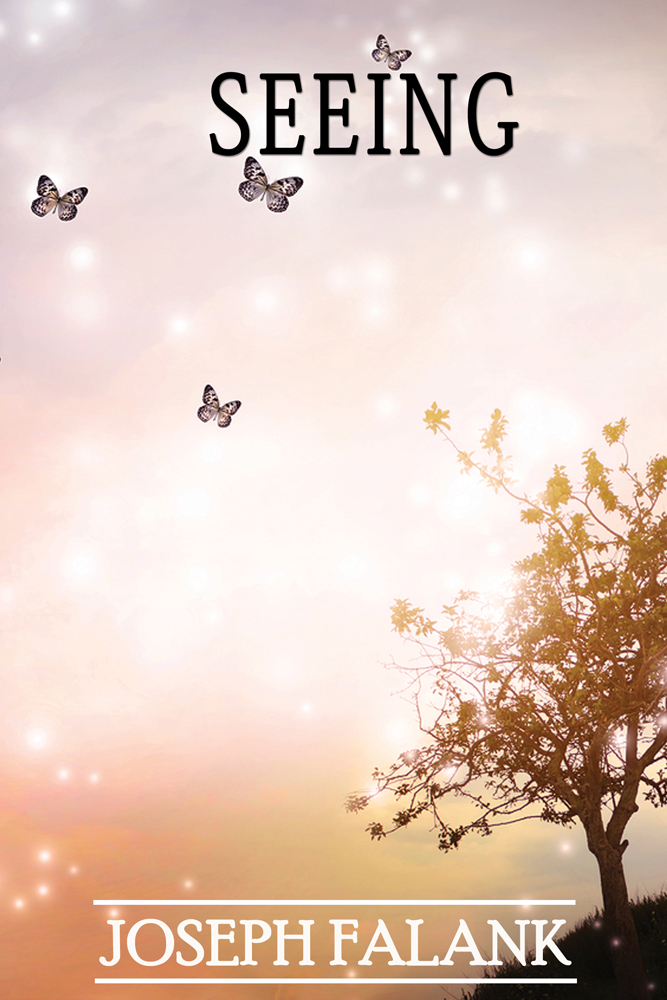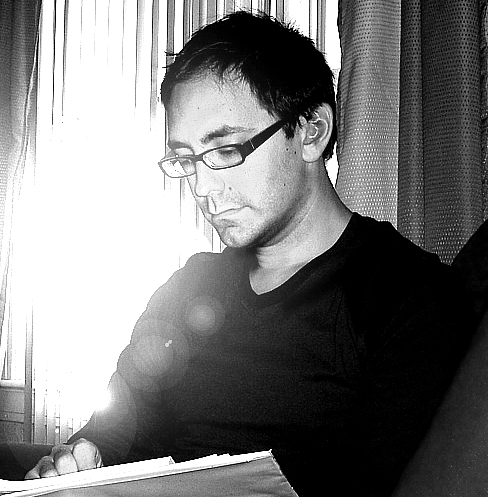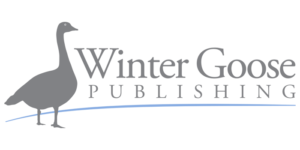A Winter After Many Long Seasons
Hello there. My name is Joseph Falank; I’m a writer of adult and young adult fiction and author of the recently released SEEING by Winter Goose Publishing—my first novel. I’ve put together this guest blog for WGP’s site as a sort of introduction—a way for you to get to know me a little. When I decided to write this post there were so many topics and subjects I could’ve tackled and discussed but decided it was better off, and probably easier, to start at the beginning. I’ve tasked myself with trying to keep this short and sweet and not ramble on and on—I’ll leave that to you to decide if I’ve succeeded.
So, again, hello. My name’s Joe. Nice to meet you.
Ninety-five percent of writers (and this figure is in no way based on fact, just a good rounded number I’ve come up with) will tell you they’ve been writing stories since they were young and able to put pen/pencil/crayon/mom’s eyeliner stick to paper. Well, I would fit in with that majority percent. I grew up on stories, whether it was reading them, writing them, watching them, or acting them out through imaginative play. There were no Nintendo 3DSs or Apple products to keep in one’s pockets back then. I did have video games but I used my imagination far more (Example: while purchasing paint supplies at the store yesterday, I informed my wife that when I was a kid I would pretend the wooden paint mixers, and whiffleball bats for that matter, were lightsabers. Because they were.).
I had a love for telling stories but never really considered it to be more than a hobby. I took Creative Writing in high school and enjoyed it very much. A story I wrote towards the end of my senior year (in 2001) was actually stolen off the teacher’s desk, Xeroxed, and passed out in the halls. I thought it was cool but still gave no thought to a life’s pursuit of a career that involved the craft. Like the ninety-five percent of writers I mentioned earlier, that epiphany didn’t strike until college.
The professor I had for my Creative Writing sequence in college, Anna Halligan, was the first to ever suggest I try to get myself published. She praised a prequel tale I wrote for Shirley Jackson’s short story, “The Lottery” (my favorite short), and had done it in front of the class, telling them to keep their eyes on me because “he’s going to be a successful writer.” Halligan also took a story I wrote for her class and got it into the college fiction collection put out by the English department (Breaking Ground). But in the end, in a twist that rivals even The Sixth Sense, I would learn that Professor Halligan was actually dead the whole time it was Professor Halligan who would turn me away from writing.
Three years after college (this would be in 2008) I wrote my second novel. For the first time in my life I felt a story I had created—in this case a young adult tale about a girl named Maddie who wielded a unique power—had a real chance of being published. It had mystery, heart, and a wicked surprise ending. I wanted the manuscript to be perfect before I submitted it. I thought of Professor Halligan and e-mailed her, asking if she’d read my book and give me her thoughts. She remembered me from her class and said she was delighted to give it a look over.
You can probably see where this is going.
Three weeks later I got an e-mail from my old professor; she said she hadn’t finished the manuscript. Actually, her words were she couldn’t finish it because the first chapter was so horribly written, the main character so unbelievable, that she couldn’t continue.
There was more, the scathing comments cutting deeper, but I digress.
The conclusion here is that upon having my biggest supporter suddenly turn on me…all passion for writing simply left. I wouldn’t dare do it, believing I was as awful as Professor Halligan said. So that was it. Onto something else.
I wouldn’t attempt another story for two years.
It was my wife—who I had been dating for eight months at the time—who convinced me that it was okay to start up again. What began as a talk about our future turned in the direction of our individual goals and dreams. She told me she wanted to be a school principal, meaning she’d have to go back to school to get her administration degree. It would mean a lot of work and a lot of sacrifice, but I told her I fully supported her dream. She then asked me what my dream was.
I told her I didn’t know. While the desire to write had started nagging once again at the back of my mind after so much time away (like any addiction does), and the words “I want to be an author” were right there on my tongue, there was still that fear. It was still so palpable how my old professor’s review had made me feel. I couldn’t face that kind of rejection again.
Instead I mentioned things like being an English teacher (because I loved books), and being a gym teacher (because it would be fun), but nothing I said felt true to myself. I’d worked with kids for eight years at that point in my life—teaching felt a natural answer. I had always been told I would make a wonderful teacher. Maybe, but teaching wasn’t for me.
Finally, I let the words slip. “I want to be an author.” I explained how there was no greater accomplishment in life (to me) than having your name on the front of a book. To be a published author. Published meant acceptance. Published was a pedestal to stand on. It meant you were chosen for greatness.
On our anniversary that month, Rebecca gave me a green spiral notebook and a pack of pens. They were to be used to write my next book—the book that would get published.
No pressure, right?
But, surprisingly, that spark of interest, long kept dormant, quickly grew into a blazing fire. I wanted to write again. Felt safe doing it.
All I needed was an idea.
There were many, but the idea came after about a week.
In my head I saw a boy. He was running a race. This boy was running but not trying to win. Why? There was something—something in the distance—he was running towards. This something wasn’t visible to anyone else. To the onlookers this boy was running like everyone else around him. Nothing appeared out of the ordinary.
That’s all there was. I wrote what I could down. Over time I filled in the pieces—creating a backstory for this boy, figuring out who he was and what he was looking at during this race. I plotted the entire story.
Then it got to a point where I needed to start or fall to the pressure building up inside of me. I felt I had this pure, heartwarming (and heart-wrenching) story; but I’d felt this way before.
Halligan was in my head. Telling me how awful a writer I was. How unbelievable my characters were.
But then I thought of my story. It was a tale of redemption. Of overcoming the past. Of letting go.
Then I wondered, if by writing this story, could I be redeemed?
It was a good place to begin.
In three months I finished the first draft, mostly handwritten in my green spiral notebook. I wrote whenever I could: at home, at Becca’s, at work (don’t tell my boss).
Over the next three years the story went through many drafts—about eight total.
And over those three years I submitted it to publishers, to agents. Everywhere. There were some requests for partials, some even requested the full manuscript. I kept hearing the same thing: Lovely story, very inspiring, but don’t know how to market it.
For a time I even secured a lit agent who saw a lot of potential in the manuscript, but she ran into the same dead-end rejections when approaching the big six publishing houses: Don’t know how to market it.
When it came time to renew the agreement with my agent, I decided it was time to let her go. She kept wanting to fight to get me in with the big houses (obviously she wanted to make something off a deal—that’s part of her job), but I believed no amount of arguing would change their minds. Big houses weren’t taking chances on stories about hope from first time authors with no publishing credits. I realized I needed to approach the smaller independent houses. They didn’t pay outright, but small publishers were braver, gutsier. They were all about taking chances.
I submitted my novel to a few. One of which was a house out of Sacramento, Winter Goose Publishing. I sent them my manuscript in February (2013).
One afternoon that April, I got a message from Winter Goose.
My novel had been accepted. I was going to be a published author.
SEEING was published June 30, 2014.

Dream achieved!
(And the dream will continue—my second novel, PICTURES, will be out late next year.)



